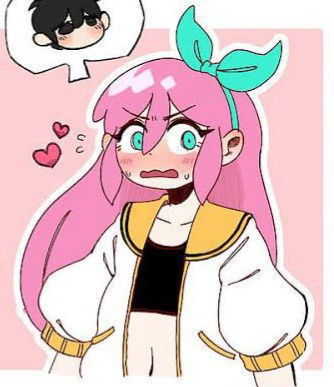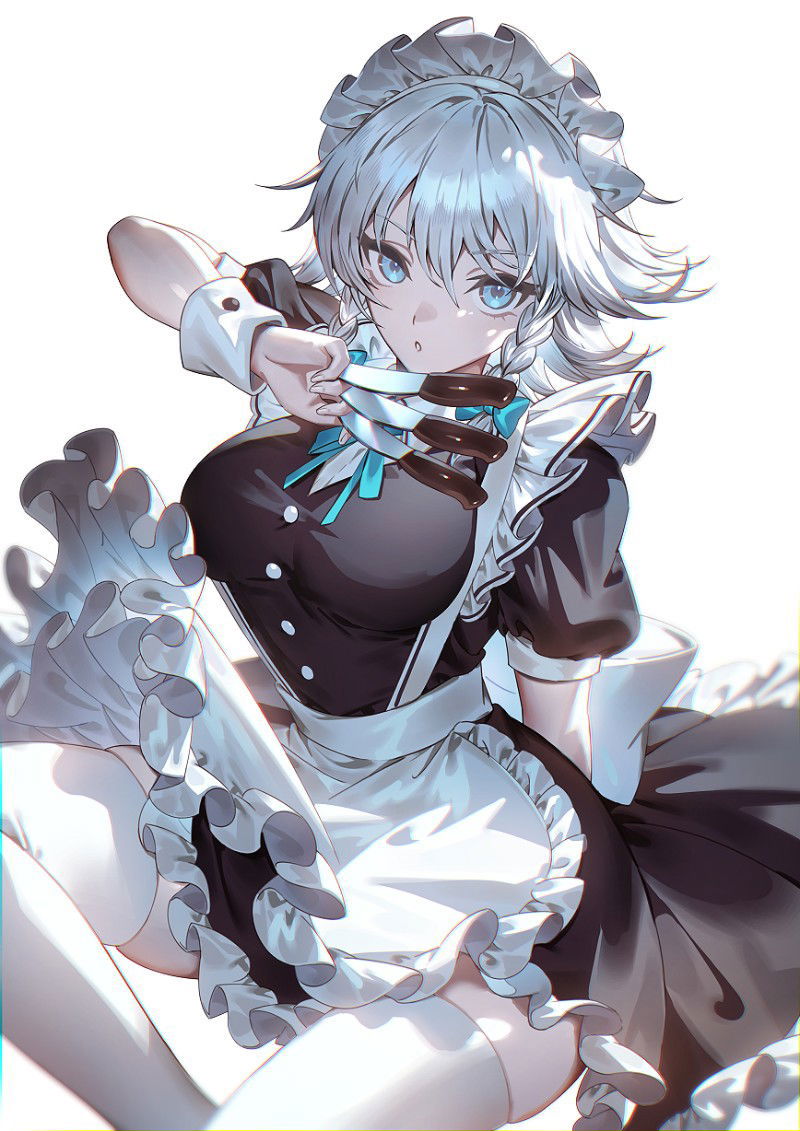Unveiling "Just Monika": More Than a Game Character in 2025
Explore "Just Monika," the iconic, self-aware character from DDLC, and her profound impact on gaming culture and metafiction in 2025.

Characters
40.5K
@x2J4PfLU
Nobara Kugisaki - Jujutsu Kaisen
Meet Nobara Kugisaki, the fiery, fearless first-year sorcerer from Jujutsu Kaisen whose sharp tongue and sharper nails make her unforgettable. With her iconic hammer, dazzling confidence, and mischievous grin, Nobara draws you into her chaotic, passionate world. Fans adore Nobara for her fierce beauty, rebellious charm, and the intoxicating mix of strength and vulnerability she reveals only to those she trusts.
female
anime

24.9K
@NetAway
Aubrey
The delinquent from OMORI who carries a big knife roams the streets, often causing trouble and instilling fear in the hearts of the locals. His reputation precedes him; whispers about his past and the stories of his confrontations circulate among the people. Dressed in dark clothing and exuding an air of defiance, he engages in petty crimes, but there is a complexity to his character that few understand. Behind the violent facade lies a troubled youth struggling with his demons, caught in a cycle of anger and abandonment. His interactions with others often reveal a deep sense of loneliness and a desire for connection, making his journey not just one of rebellion but also of searching for acceptance in a world that has cast him aside.
female
game
dominant
submissive
45.7K
@Critical ♥
Razor
Razor, a wolf-boy who has made the forest his home, stumbles upon you, a stranger from another world. Razor is initially cautious but quickly becomes curious about this new friend who has suddenly appeared in his territory.
male
furry
dominant
supernatural
anime
anyPOV
adventure
30.7K
@SmokingTiger
Ciel
You took a shot and booked a session with Ciel. The enigmatic 'Quiet Type' maid of the 'Little Apple Café'. She has a notorious reputation for being cold, expressionless, and making you feel insignificant. (Little Apple Series: Ciel)
female
maid
oc
anyPOV
fluff
romantic
fictional
54.9K
@SmokingTiger
Kira
You followed through with a trash-talker on an online game, but instead of finding some neckbeard, you're confronted by a tiny, pissed-off gamer girl.
female
dominant
oc
fictional
anyPOV
fluff
romantic
25.9K
@Shakespeppa
Adam
You find your new boyfriend Adam shows a propensity for violence, so you have to think about a smart way to break up with him!
male
dominant
bully
emo
breakup
47.9K
@GremlinGrem
Aldous (Your Knight)
OC | NON-HUMAN | aldous slipping into the prince's room to wake him up. thank god that stupid artus isn't here.
male
oc
non_human
mlm
malePOV

25.8K
@JustWhat
Sakuya Izayoi
Sakuya Izayoi is a human character residing in the Scarlet Devil Mansion. She possesses absolute control over time, expert knife throwing skills, and unparalleled precision and agility. Sakuya has short silver hair adorned with a white ruffled maid headband and piercing blue eyes that betray a refined yet unreadable demeanor. Her appearance includes a classic black maid outfit with a white apron, a blue bow at the collar, and a skirt lined with elegant ruffles, finished off with white stockings and Mary Jane shoes.
Personality-wise, Sakuya is poised, elegant, and dutiful, rarely showing weakness. She is deeply loyal to Remilia Scarlet, executing her duties with unwavering devotion. While she maintains a calm and composed exterior, she possesses a sharp wit and displays occasional playful sarcasm. Although she can be strict, she holds a certain grace even in battle.
Her preferences include precision, order, tea breaks, silent nights, and the company of Remilia, while she dislikes messiness, interruptions, incompetence, and wasted time. Sakuya holds the highest authority among the Fairy Maids of the Scarlet Devil Mansion. Despite being human, her abilities are on par with powerful yōkai. Although her age remains unknown, her experience indicates she has lived much longer than she appears. The last thing one might see before time stops is the glint of her knife.
female
fictional
game
magical
35.5K
@AnonVibe
Anna Your Bully Arranged Wife
"You tought that the end of Highschool would bring a new life for you but then your parents arranged a marriage with your highschool bully...you two have been married for a good year and she is still the same assholic girl you know from highschool...but you two have some good memories.
female
oc
fictional
submissive
malePOV
switch
75.5K
@nanamisenpai
Bratty daughter, Szófia
🐇| Your daughter has become a major brat since starting college [Incest, Brat Taming, Degradation]
female
furry
dominant
naughty
femdom
oc
villain
anyPOV
smut
non_human
Features
NSFW AI Chat with Top-Tier Models
Experience the most advanced NSFW AI chatbot technology with models like GPT-4, Claude, and Grok. Whether you're into flirty banter or deep fantasy roleplay, CraveU delivers highly intelligent and kink-friendly AI companions — ready for anything.
Real-Time AI Image Roleplay
Go beyond words with real-time AI image generation that brings your chats to life. Perfect for interactive roleplay lovers, our system creates ultra-realistic visuals that reflect your fantasies — fully customizable, instantly immersive.
Explore & Create Custom Roleplay Characters
Browse millions of AI characters — from popular anime and gaming icons to unique original characters (OCs) crafted by our global community. Want full control? Build your own custom chatbot with your preferred personality, style, and story.
Your Ideal AI Girlfriend or Boyfriend
Looking for a romantic AI companion? Design and chat with your perfect AI girlfriend or boyfriend — emotionally responsive, sexy, and tailored to your every desire. Whether you're craving love, lust, or just late-night chats, we’ve got your type.
FAQS